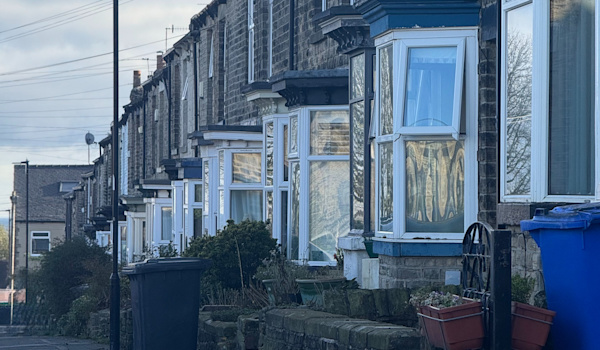How advisers can challenge local authority delays in homelessness applications, including case studies of Ombudsman decisions which consider delays.
Published October 2023
Problems with delays in homeless applications
Delays in homeless applications are a common source of frustration for housing advisers and their clients. The Local Government and Social Care Ombudsman's July 2020 'Home Truths' report on homeless applications reported that delay was a common issue in the complaints they received.
Delays can leave a homeless applicant unsure if their application has been accepted or what duties they are owed. This can mean wasted time, unnecessary distress and uncertainty. It can even leave people in unsafe housing or sleeping rough when they are owed emergency accommodation.
Options to deal with delays
As an adviser you can try to speed up the process. Your options depend on the stage of the homeless application and the circumstances around the delay.
You could complain to the local authority if it has delayed taking necessary steps. Once the authority's complaints process has been exhausted, you or your client could then escalate the complaint to the Local Government and Social Care Ombudsman. Significant delays are likely to be found to be maladministration by the Ombudsman.
In some situations, you could refer your client for help with a claim under judicial review, depending on the merits of the case.
Delays after the initial approach
There is no standard format for making a homeless application. It simply refers to the act of making the local authority aware that someone is homeless or at risk of homelessness. This typically involves contacting the local authority by phone, email or completing an online form.
If the local authority has reason to believe that your client might be homeless or threatened with homelessness, it should begin inquiries into what duty, if any, is owed.
There is no specific time limit for a local authority to respond to an initial approach to make a homeless application.
You or your client could complain to a local authority if it does not respond promptly to an initial approach. If the problem is still not resolved, you could then escalate this to the Local Government and Social Care Ombudsman.
Local authority delays can be so severe that it amounts to gatekeeping. Gatekeeping is where a local authority refuses to accept a homeless application when it has a legal duty to do so. In this situation, you could discuss the option of a judicial review claim with your client. If your client is financially eligible, they should be able to get help with this under legal aid.
Find out more about complaints to the Local Government and Social Care Ombudsman and judicial review of decisions in homelessness cases on Shelter Legal.
Case study: delays in accepting a homeless application
The Local Government and Social Care Ombudsman considered a complaint after the London Borough of Newham delayed responding to a homeless application.
The homeless applicant made an application on 4 August 2022 and the case was allocated to a case officer on 24 August 2022. The local authority eventually accepted the prevention duty on 21 September 2022. During this time, the applicant had to chase up the council to get a response.
On investigating, the Ombudsman found:
'...the initial lack of communication is fault and would have caused Mr X significant distress at a time he was seeking help which meant he spent unnecessary time and trouble contacting the Council to get a response.’
The Ombudsman found that the local authority was at fault due to delays in handling the homeless application. The Ombudsman agreed with Newham's proposal to apologise to the applicant and make an award of compensation.
Read the full decision via the Local Government and Social Care Ombudsman: 08 620 - Local Government and Social Care Ombudsman.
Delays in offering interim accommodation
A local authority must offer interim accommodation to your client if it has reason to believe they are eligible for assistance, homeless and in priority need.
Delays in completing initial inquiries are particularly difficult when someone needs emergency accommodation. If your client requires interim accommodation, it’s normally by definition an urgent situation.
To deal with delays in providing interim accommodation where the local authority has a duty, or is disputing that a duty is owed, you could:
make a complaint to the local authority
escalate the complaint to the Local Government and Social Care Ombudsman
seek help for the applicant to make a claim under judicial review
The typical urgency of this situation means judicial review is likely to be the fastest and preferred option if the local authority delays or refuses to provide interim accommodation for your client where it is urgently needed.
Your client will need assistance from a solicitor to make a claim for judicial review. If they are financially eligible they can get help under legal aid with this.
You could also help with a complaint to the local authority (which can then be escalated to the Ombudsman), either immediately, or to follow up once the issue is resolved.
Find out more about complaints to the Local Government and Social Care Ombudsman and judicial review of decisions in homelessness cases on Shelter Legal.
Case study: delays in providing interim accommodation
The Local Government and Social Care Ombudsman found that Westminster City Council was at fault for not providing a homeless applicant with interim accommodation sooner. The delay left the applicant without accommodation for a month.
In February 2021, the homeless applicant provided the council with medical evidence, including a psychology report, that he was vulnerable and therefore in priority need. He re-submitted the same report on 5 March 2021 and the authority accepted that it had a duty to provide interim accommodation.
The Ombudsman found:
'I cannot see what additional medical evidence Mr X provided to make the Council change its position. The Council already had the psychology report outlining Mr X’s mental health conditions. On balance I am satisfied the Council should have provided Mr X with interim accommodation in early February 2021, given it decided to offer him interim accommodation in March 2021.'
It was agreed that the authority should apologise to the applicant, pay £980 in compensation and review its processes and complaint procedures.
Read the full decision via the Local Government and Social Care Ombudsman: 21 006 060 - Local Government and Social Care Ombudsman.
Delays in making a decision on the main housing duty
When a local authority accepts a duty to relieve your client's homelessness, it must issue a decision on whether it owes the main housing duty towards them after 56 days.
The Homelessness Code of Guidance states at paragraph 14.17 that where the local authority has the information it needs, it should be able to make a decision 'on or around day 57'.
In some cases, the local authority might extend the relief duty beyond 56 days. Where further investigation is needed, the Code of Guidance says authorities should aim to complete inquiries and notify the applicant a maximum of 15 working days after the 56 days has ended.
If the local authority continues to delay a decision, you or your client could complain to the local authority, and if needed, you could escalate it to the Ombudsman.
Judicial review might also be an option to discuss with your client. The merits of the case might depend on the impact the delay is having on them. For example, if your client is in suitable interim accommodation, this might reduce the merits of a judicial review claim.
Find out more about complaints to the Local Government and Social Care Ombudsman and judicial review of decisions in homelessness cases on Shelter Legal.
Case study: delays in the main housing duty decision
The Local Government and Social Care Ombudsman found fault in the way Canterbury City Council delayed issuing a decision on the main housing duty.
The local authority's records showed it intended to make a decision that the homeless applicant did not have priority need on 21 September 2018. In fact, the decision was not made until over two years later on 14 October 2020. It was then withdrawn and the main housing duty was accepted on 30 October 2020.
Even after this, there was no record that the applicant was actually notified until 6 December 2020.
The Ombudsman said:
'The significant delays in dealing with Mr X’s homeless application and failings in communication, including within the complaints process are fault. This fault has caused Mr X an injustice.'
The authority agreed with the Ombudsman that it would apologise and pay £1000 in compensation to the applicant.
Read the full decision via the Local Government and Social Care Ombudsman: 13 114 - Local Government and Social Care Ombudsman.
Delays in homelessness reviews
Your client might have the right to a review of a decision about their homelessness application. When someone requests a review, the local authority normally needs to notify them of a decision within 56 days.
Either your client or the local authority could request an extension to this deadline. For example, to gather further evidence or to allow more time for inquiries. As long as both parties agree, it is not normally a problem.
You can help your client complain to their local authority about a delay issuing a decision on review beyond the first 56 days, or any agreed extension. As with any complaint to a local authority, you can then escalate the complaint to the Ombudsman if you need to.
You could also explain the option of judicial review to your client. The merits of their claim and their chances of success could depend on the length of the delay, and how severe an impact the delay is causing.
Find out more about complaints to the Local Government and Social Care Ombudsman and judicial review of decisions in homelessness cases on Shelter Legal.
Case study: delays in making a decision on review
The Local Government and Social Care Ombudsman found Birmingham City Council was at fault for delaying its decision on review.
The homeless applicant made a request for a review of the suitability of her temporary accommodation in April 2022. The authority had 56 days to complete this, so should have made the decision in June. The decision was not made until August.
The Ombudsman found:
'This delay of two months was fault. This delayed the Council looking for alternative accommodation for Ms X. But for this delay, Ms X might have moved out of the unsuitable accommodation sooner. This uncertainty is an injustice to Ms X.'
It was agreed the authority would apologise and pay £2250 in compensation to the applicant.
Read the full decision via the Local Government and Social Care Ombudsman: 22 017 327 - Local Government and Social Care Ombudsman.
Delays in offering alternative temporary accommodation
A homeless applicant has a right to review of the suitability of temporary accommodation provided under the main housing duty.
When a local authority accepts that your client's current temporary accommodation is unsuitable, it should arrange for alternative temporary accommodation to be made available straight away.
Your client could consider making a complaint to the local authority if it delays in offering alternative accommodation. Once this has been exhausted, you or your client could be escalate the complaint to the Local Government and Social Care Ombudsman.
Your client could also seek help under legal aid with a potential claim for judicial review. As with any claim under judicial review, the solicitor will consider the merits before beginning any action.
Find out more about complaints to the Local Government and Social Care Ombudsman and judicial review of decisions in homelessness cases on Shelter Legal.
Case study: delays in offering alternative temporary accommodation
The Local Government and Social Care Ombudsman considered a complaint from a homeless applicant about how the London Borough of Enfield Council dealt with her move from unsuitable temporary accommodation.
The authority accepted the accommodation was unsuitable on 25 September 2020, but it did not place the applicant on a list for transfers until March 2021. The move was given priority in November 2021, but the applicant was still not offered alternative temporary accommodation in the borough until February 2022.
The Ombudsman stated:
'The law says temporary accommodation must be suitable. The duty is immediate, non-deferable, and unqualified. The Council accepted in September 2020 Miss Y’s temporary accommodation was not suitable. The Council therefore had a legal duty to secure alternative accommodation for the family immediately. It did not do so. This service failure is fault.
As a result, Miss Y and her three children continued to live from September 2020 to February 2022 in unsuitable temporary accommodation.'
It was agreed that the authority had to apologise, pay the applicant £5950 in compensation and draw up new guidance to avoid similar problems reoccurring in future.
Read the full decision via the Local Government and Social Care Ombudsman: 21 015 033 - Local Government and Social Care Ombudsman.



